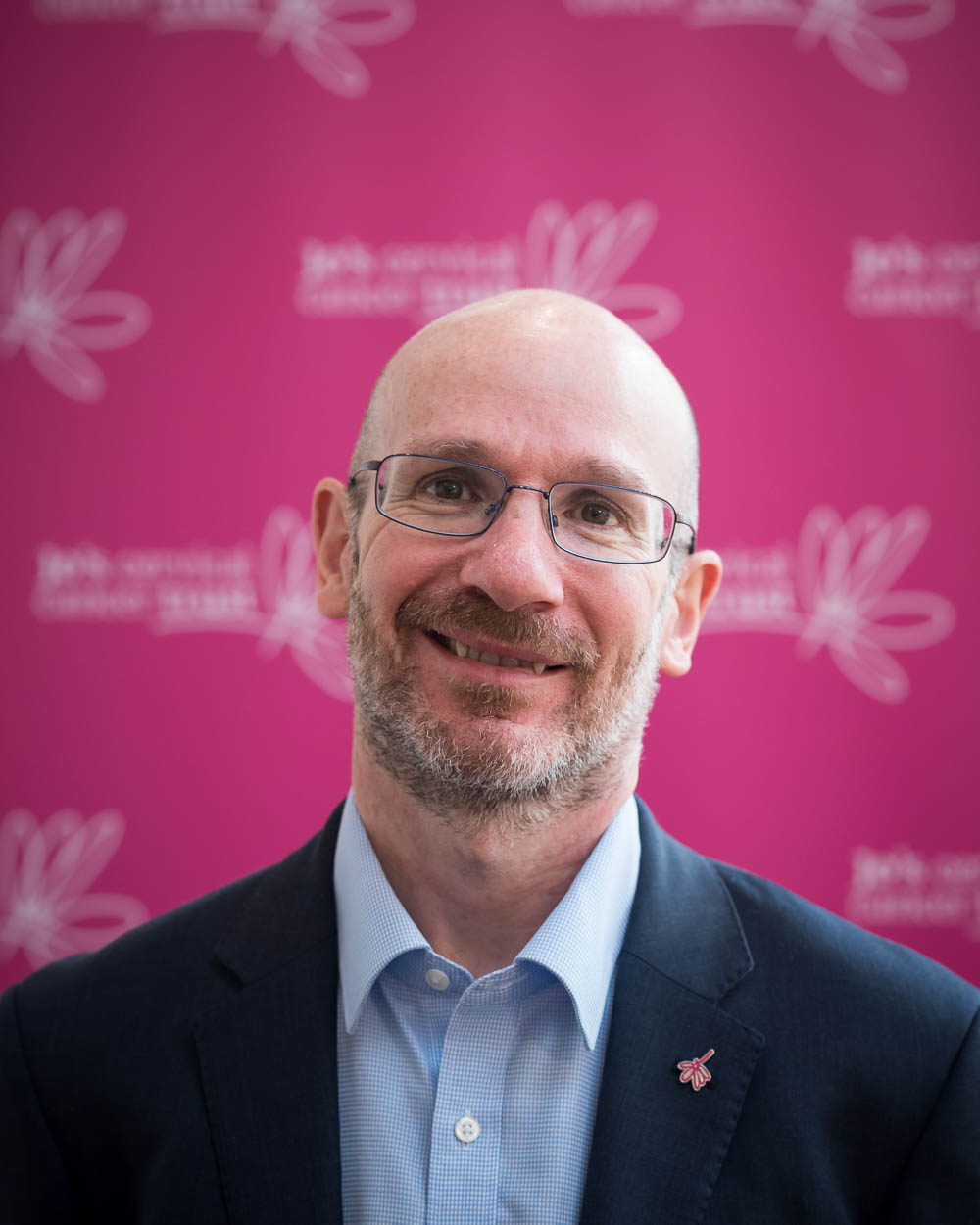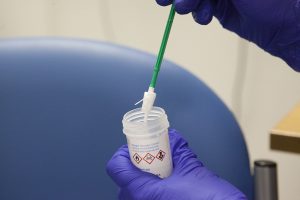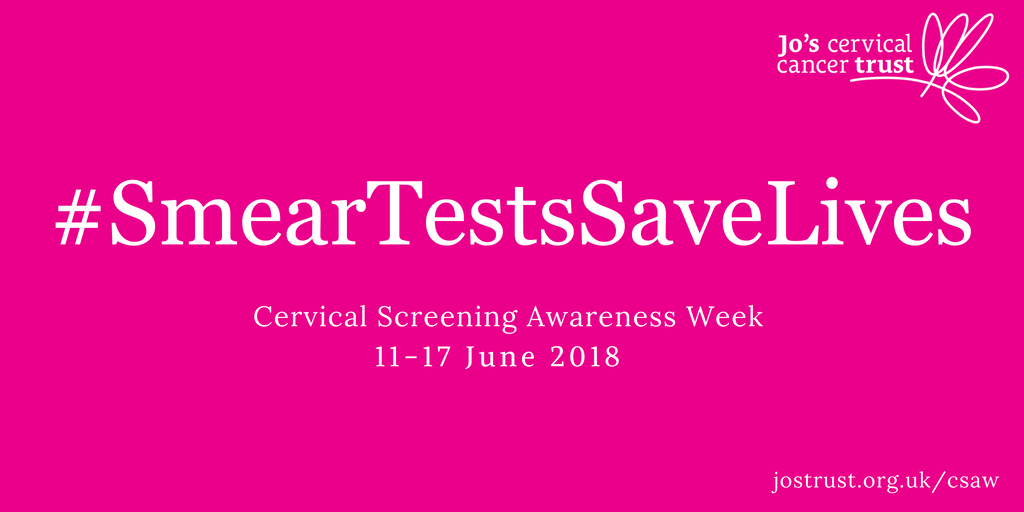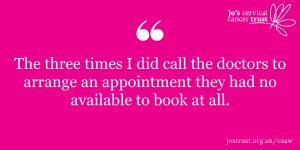
By Robert Music, Chief Executive, Jo’s Cervical Cancer Trust
Of the five million women invited every year for cervical screening in the UK, over one in four don’t attend. There are many psychological, literacy and cultural barriers affecting awareness and intention to attend yet more and more women are telling us that they are struggling to get a cervical screening appointment. To me, this highlights that access could be the biggest issue to attendance.
New research that we have carried out at Jo’s Cervical Cancer Trust found that almost one in 10 women were only offered times they couldn’t make the last time they tried to book an appointment and more worryingly, 7% were told no appointments were available when they last tried to book.
Opportunities for women to access the programme are unequal depending on where they live and their personal situation with some groups of women, including those with a physical disability or who have experienced sexual violence, further disadvantaged by the current setup and delivery. While the pressures facing primary care cannot be denied, cervical screening is predominantly delivered through GP practices, so it should not be the case that women are unable to get an appointment.
Today we are calling for urgent action and have released a report ‘Computer says “no”’ looking at the problems affecting access across the country.
This includes
- Reduced availability at sexual health services (GUM clinics) – with a 52% reduction in samples taken in England and 42% reduction in Wales since 2013, however a higher proportion of abnormal results taken in sexual health. This is especially concerning as almost twice as many samples taken at GUM clinics came back as abnormal compared to 5.9% in a GP setting.
- An IT system in England deemed “no longer fit for purpose” in 2011 and seven years on little progress has been made. The imminent move to HPV primary screening presents significant risk if it is implemented into a programme without a robust IT system underpinning it
- A need for more modern, digital and customer-focused system enabling changes in how the programme communicates with women
- Insufficient incentives for delivering screening which provide no incentive for provision outside of the GP setting
Solutions must be found, and we are calling for greater integrated approaches to commissioning and delivering across primary care and sexual health, along with an audit in each country with Government, NHS, commissioners, providers and public health specialists working together to assess what more can be done to ensure all women can access cervical screening at a location, time and service appropriate to them.
Self-sampling presents an opportunity not only to increase attendance but also to reduce pressure on primary care. Our research shows that 80% of women would prefer to self-sample if they had the opportunity – that would equate to four million women each year. We hope to see this introduced soon with funding for a large-scale pilot, which can count towards coverage statistics.
One of our greatest concerns is over the current IT systems in England, where over 350 systems are in existence across primary care, colposcopy and laboratories. While the move to HPV primary screening will save lives and is hugely exciting, on the current IT infrastructure it presents a significant risk. We want the Department of Health and Social Care, along with NHS England and Public Health England, to urgently conduct a review of the IT landscape and commit to investing in a system which is fit for purpose, fit for the future and safe.

We have a highly effective cervical screening programme with an extremely skilled and passionate workforce delivering a quality service to millions each year. It remains one of the best in the world, so it simply isn’t good enough that women are unable to access it. We know cervical cancer can be made a disease of the past, however that won’t happen if screening attendance does not increase. There is an urgent need for change and for that to happen now.
For more information, and to read the report visit www.jostrust.org.uk/access
Information on the Public Health England 2019 campaign to increase coverage can be found here
Subscribe to our mailing list to get updates of new posts…
| Are you putting off a smear test because of #FOFO? (#FearOfFindingOut) |

The views expressed are those of the author. Posting of the blog does not signify that the Cancer Prevention Group endorse those views or opinions.


Leave a Reply